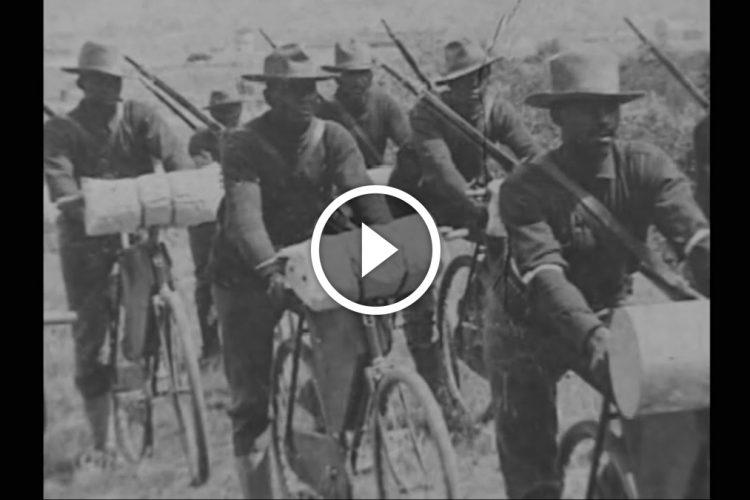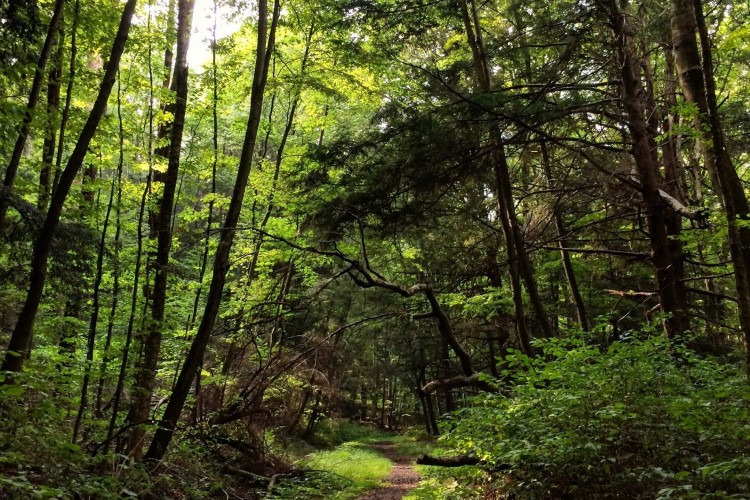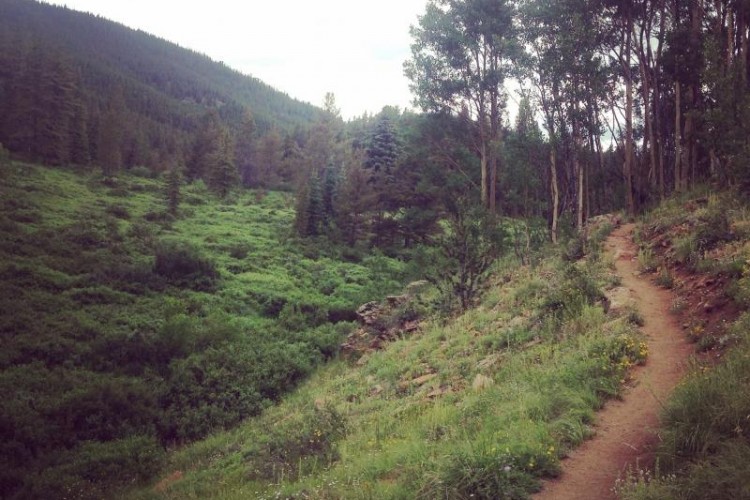IMBA has announced a new “assertive stance” to fight what they view as wrongful trail closures without due process in places where they have an active IMBA chapter, during their press conference Thursday. However, IMBA has reaffirmed that they do not support mountain biking in Wilderness areas, and in no way do they seek to modify the 1964 Wilderness Act:
“IMBA’s board renewed its longtime position that amending the 1964 Wilderness act is an unnecessary means to achieve our mission. Therefore, IMBA’s board will not support any effort and will not support any organization that attempts to amend the 1964 Wilderness Act. There are downstream negative and unintended consequences that make such an effort politically unviable. IMBA will not expend its hard-earned political capital on such a risky and unnecessary endeavor, when so much more access can be achieved on 90% of public lands that are not currently protected as Wilderness.”
In plain English, IMBA does not support the efforts of the Sustainable Trails Coalition, and does not agree with 90.5% of mountain bikers who believe that mountain bike advocates should be actively pushing for access to Wilderness.
However, in a somewhat contradictory claim, IMBA states that while they do not support amending the Wilderness Act and seeking to get bikes allowed in Wilderness Areas, they do believe that bikes are compatible with the intent of the Wilderness Act: “Bicycling is a human-powered, low-impact, quiet form of travel and healthy outdoor recreation compatible with wild places and the intent of the Wilderness Act.” (Source) So, if IMBA was answering our survey questions, they probably would have answered “No” to the question of whether or not mountain bike advocates should be pushing for access to Wilderness trails, they would have answered “Yes” to whether or not mountain biking is compatible with Wilderness ethics, and when asked if mountain bikers should have access to some or all Wilderness Areas, they would have written in an answer of, “we believe some of the mountain bike trails currently in Wilderness should not be in Wilderness.” See below for a discussion of redrawing Wilderness boundaries.
Instead of working to open Wilderness to mountain bikes, IMBA’s reasoning is that they can achieve much more progress by working on current and ongoing trail building projects on non-Wilderness land.

When I asked, “What would you say to the 90% of mountain bikers that think we should be trying to open Wilderness to bikes?” Mike Van Abel, IMBA’s President, responded,
“I didn’t actually take the survey, so I don’t even know the questions that were asked. The response did not surprise me at all. We know the aspirations that mountain bikers have and the experience that they want, and what better experience than a wilderness or wilderness-like experience, being in a landscape that gives us, as mountain bikers, the solitude, the adventure, the sense of freedom–all those benefits that most of us know quite well. So I was not at all surprised by the response that you got.”
Note that Singletracks.com informed IMBA of the release of our survey data prior to the press conference, and that we even supplied IMBA with the questions that we asked, along with all of the data that we received in response.
Based on the press conference, it is clear that above and beyond their “assertive stance” to fighting trail closures, IMBA will not be taking any action to help bikes gain access to Wilderness Areas, contrary to the wishes of the vast majority of mountain bikers. That said, IMBA believes that there is plenty of room for mountain bikers to support more than one advocacy group. As Heather Cooper of IMBA wrote,
“We also want to encourage supporters to recognize that there is room in the public policy arena for you to support multiple organizations. If you are aligned with other mountain bike advocacy organizations’ vision, strategies and tactics, please support them. If you plan on mountain biking long term, IMBA values your loyal support too! This is a win-win for all.”
For more information on what IMBA is willing to do, read on.
IMBA’s Assertive Stance to Fight Trail Closures
IMBA has reaffirmed that they are ardently against the closure of trails that are currently open to bikes:
“It is unacceptable for government agencies to arbitrarily, without proper analysis and empirical evidence of adverse impacts, close access to trails currently enjoyed by people riding bicycles. Further, we will seek to reopen trails via our national support of local chapters when those local trails were arbitrarily closed to bikes.”
The key point is the second sentence: IMBA will be seeking to reopen trails that have been arbitrarily closed, and will not take those losses lying down.
One of the key tactics that IMBA plans to use is the redrawing of Wilderness boundaries to move idyllic mountain bike trails outside of the Wilderness. They successfully accomplished this in New Mexico in 2014, which was a landmark case regarding the modification of a Wilderness boundary. However, some analysts didn’t share IMBA’s enthusiasm, noting that mountain bikers gained 10 miles of trail but lost 75 miles of trail in the redrawing process. IMBA plans to use this same strategy in the future.
The Possibility of Legal Action
However, perhaps the biggest announcement was that the IMBA board has given IMBA staff approval to launch legal action regarding the closure of mountain bike trails in the Bitterroot National Forest in Montana and Idaho, due to the Forest Service recommending that area as Wilderness.
“We are currently pursuing and doing our due diligence for the possibility of legal action in the Bitterroot National Forest in Montana and Idaho. Should we decide to go forward with legal action, we will ask the court whether the US Forest Service properly applied NEPA, and other environmental laws, in their determination that bikes are incompatible with and diminish the wilderness character of a landscape.”
It’s important to note that the areas in question are not currently Wilderness or Wilderness Study Areas, but simply national forest areas that the local Forest Service is recommending as Wilderness. However, the Forest Service has already chosen to ban mountain bikes from these trails, and quite probably without due process and environmental analysis: this is where the possibility of the lawsuit arises. It’s important to note that IMBA has not yet decided whether or not to engage in legal action. While IMBA staff has received board approval for legal action, they are still assessing the ramifications of that action, and the likelihood that the courts would rule in their favor.
IMBA is not known for filing lawsuits, so even the possibility of legal action is a significant change in strategy. IMBA has only tried to fight the loss of mountain bike access with a lawsuit one time: in the Golden Gate National Recreation Area in California. IMBA lost.
One thing is clear: 2016 could prove to be a pivotal year for mountain bike trail access, with both IMBA and the STC pushing substantial advocacy agendas. Stay tuned as we continue to cover this topic in the months (and years) to come.



















